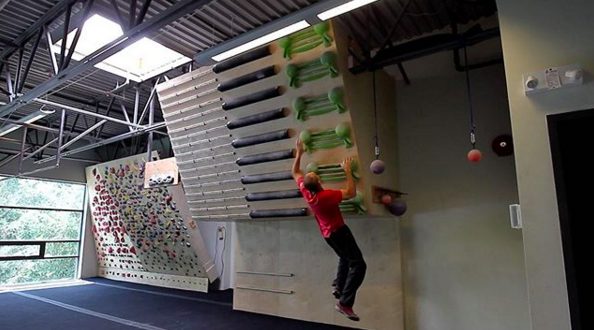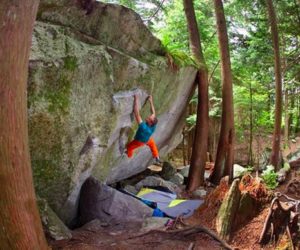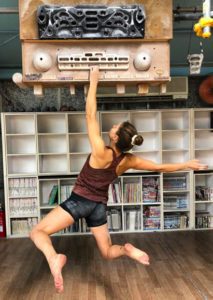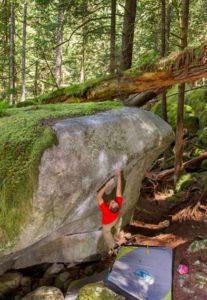A Conversation with Christian Core: What it means to train
What it means to train - a conversation with Christian Core and Allison Vest.

Christian Core began climbing when he was 12 years old. Since then he has won two Bouldering World Cup titles as well as a Bouldering World Championship title. Core is also known for establishing Gioia, the world’s first V16 boulder problem.
Christian Core has worked with the Italian National Youth Team and has coached the RAO Climbing Progress Team in Genoa Italy. He has climbed for 33 years and today, he works at the Hive, training with the youth and adult climbers of British Columbia.
(Christian Core bouldering in Squamish)
Core began training to achieve his goals both outside and in competitions. He developed training plans for friends and athletes, ultimately leading to a desire to develop something greater. A few years ago, Core sat down with Italian Cup winner Stella Marchisio, as well as Squamish climbers Tim and Anne Clifford. Together, they saw a opportunity to create an online program specifically for climbers. In this way, more climbers would have the capacity to improve, realize their goals and avoid training mistakes. This program would become Core Climber.
Training with a coach is different from training by yourself. For Core, “it means not feeling alone in what can be a difficult and complex path. It means training with a person by your side that you trust, who is competent, with the aim of making the athlete improve. Most importantly, is has to be a close relationship.”
Team Canada climber Allison Vest has trained with Core for three years. For her, it is more than a training plan. Vest says that “it might be the coach’s responsibility to design the program and delegate the specific structural ins and outs of daily training, but it is also a coach’s job to listen to the athlete’s feedback and ideas and then reevaluate where necessary.”
(Allison Vest training a The Hive)
That is the benefit of working with the experienced team of coaches of Core Climber. There are built in modifications to the plan that take into account the fact that fatigue is an ever-present aspect of climbing. The program acknowledges that each climber is unique.
As a national athlete, Vest has to take training seriously. She competes on an international stage. It can be difficult to feel like you possess the untapped reserves required to achieve your goals. This is something Core manages well. Vest says, “I never feel like he is training me to be a whole new person, instead I feel like I am just accessing the potential that I already had, which is very liberating.”
In climbing, a sport where heavy thoughts pull just as hard as gravity, the feeling of relief is indispensable. Core puts a lot of energy into each athlete to achieve this feeling. When he sees the inspiration it yields, his motivation is renewed.
(Christian Core sticking to Squamish slopers)
So why do we train? Core says, “We have two paths ahead of us that we can follow.” We can experience the joys of the climbing as a way to experience the world or we can take it further. We can push ourselves to the limit to discover the potency of our physical and mental strength.
This second path is difficult, but the challenges describe describe individual. There will be failures and confusion. There will be moments of disbelief as goals are met unexpectedly and other dreams are left for the future.
Core says that the athlete must ask themselves, “Do I believe in my choice? How much am I willing to fight to get there? Is this decision mine, or does it come from what others expect from me?… Once we have responded with total honesty to ourselves, the road to follow becomes much simpler.”





